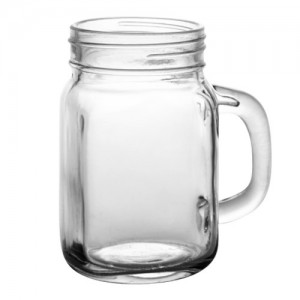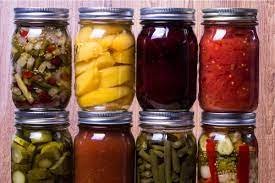Mason jars have become increasingly popular over the years, not just for their traditional use in canning but also for a variety of other kitchen tasks, including microwaving. Whether you’re looking to reheat leftovers, make a quick microwave meal, or even create a DIY microwave dessert, you might find yourself reaching for a Mason jar. However, before you pop that jar into the microwave, there are important safety considerations to take into account. In today’s post at TheKitchenApplianceDad.com, we’ll delve into whether Mason jars are microwave safe, and provide you with all the information you need to use them safely.
Mason jars are typically made from glass and come with a metal lid. They were originally designed for preserving food. Their airtight seals make them ideal for storing everything from jams and jellies to pickles and other preserves. However, their use has expanded far beyond canning.
The most common material for Mason jars is soda-lime glass, which is durable but can have limitations when exposed to rapid temperature changes. It’s important to understand the material composition of Mason jars before using them in any non-traditional way, such as in a microwave.

When it comes to microwaving Mason jars, the answer is not straightforward. While some Mason jars are safe to use in a microwave, others may not be, depending on their manufacturing process and material quality.
The first step in determining whether your Mason jar is microwave safe is to check the manufacturer’s guidelines. Some jars will have a microwave-safe symbol or note indicating whether they can be used in this way.
If you have confirmed that your Mason jar is microwave safe, follow these tips to ensure safe usage:
Always remove the metal lid and metal band before microwaving. Metal in microwaves can spark and cause fires, besides damaging your microwave.
Instead of the metal lid, cover the mouth of the jar with a microwave-safe cover or a paper towel. This will help to avoid splatters and also aid in even heating.
Start with a lower heat setting and increase it gradually. High heat can increase the risk of thermal shock.
When heating solid foods, add a little liquid to the jar. This helps to distribute heat more evenly and reduces the risk of the glass breaking.
Heating for too long can cause the glass to weaken and break. Always monitor the jar while it’s in the microwave.
If you’re unsure about the safety of microwaving your Mason jars, or if you find it too risky, consider these alternatives:
Ceramic is generally microwave safe if it’s labeled as such. It doesn’t lead to the problems associated with glass under rapid temperature changes.
Opt for containers that are specifically designed for microwave use. These are usually tempered and can handle high temperatures and thermal shock better.
Many plastics are designed to be microwave safe. However, ensure they are BPA-free to avoid chemicals leaching into your food.
Mason jars can be a versatile kitchen tool, but safety should always come first, especially when using appliances like microwaves. By understanding the proper usage and precautions, you can ensure safe and effective heating in your culinary endeavors. Remember, when in doubt, it’s better to err on the side of caution and choose a container that is unequivocally safe for microwave use.

